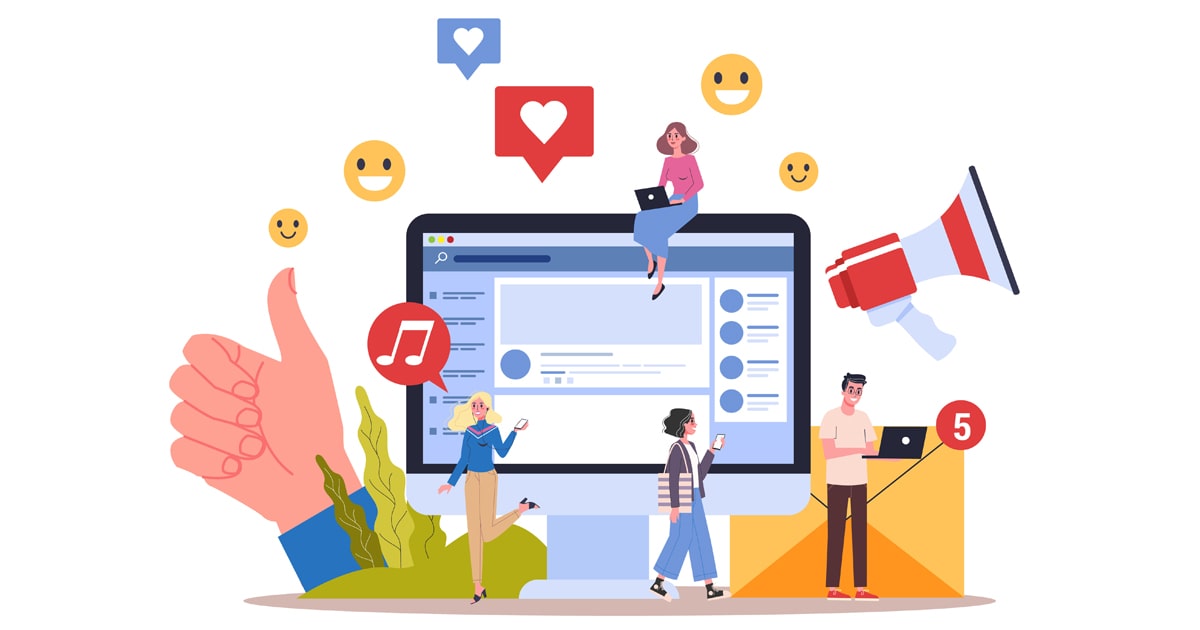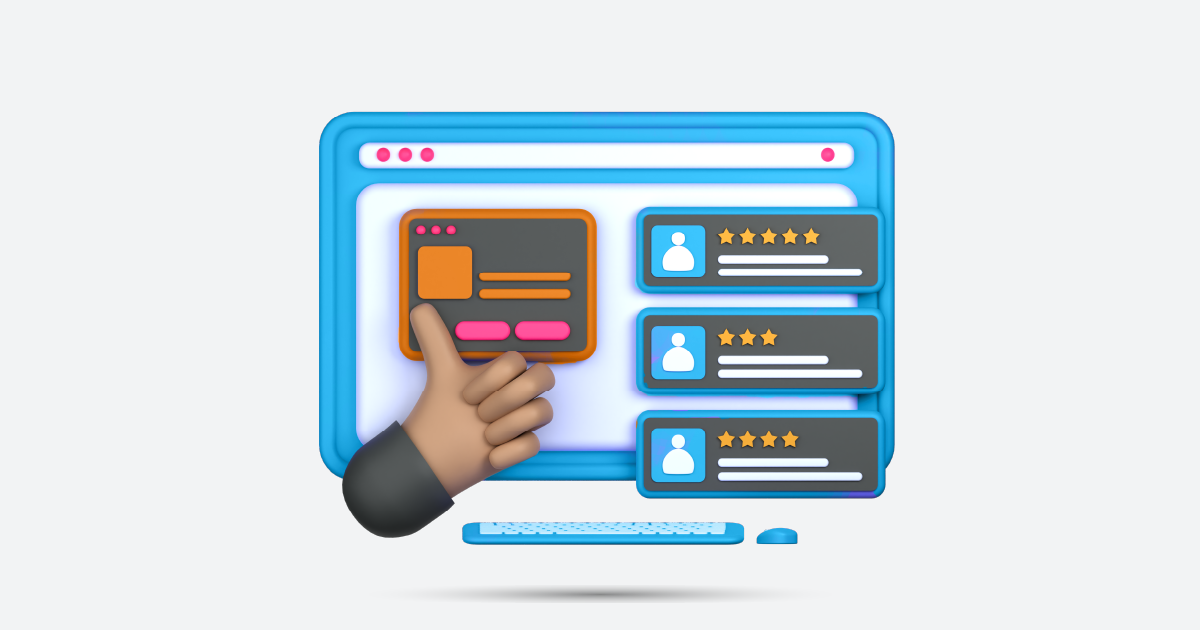In the ever-evolving landscape of digital marketing, small businesses are finding innovative ways to stay competitive and relevant. One such strategy gaining popularity is social listening, a powerful tool that goes beyond mere online presence. In this article, we explore the nuances of social listening for small business, from its definition to practical tips for implementation.
Why Social Listening Matters for Small Business

Small businesses often operate on tight budgets and limited resources. However, the benefits of social listening can significantly impact their growth and success.
1. Understanding Customer Needs
In a world where consumer preferences change rapidly, understanding what your customers are saying provides valuable insights. Social listening allows small business to identify trends, preferences, and pain points, enabling them to tailor products and services to meet customer needs.
2. Monitoring Brand Reputation
The reputation of a small business is vital for attracting and retaining customers. Social listening helps in proactively managing your brand’s image by addressing concerns, resolving issues, and amplifying positive feedback.
3. Identifying Competitor Strategies
Knowledge is power, and in business, knowing what your competitors are doing can give you a competitive edge. Social listening enables small businesses to stay informed about industry trends, competitor strategies, and emerging opportunities.
Social Listening Tools
Several tools cater specifically to social listening, making it accessible even for businesses with limited resources.
1. Google Alerts
A simple and free tool, Google Alerts notifies businesses whenever their brand or relevant keywords are mentioned online. This allows for real-time awareness and timely responses.
2. Social Mention
Social Mention aggregates content from various social media platforms, providing an overview of brand mentions, sentiment, and hashtags. It’s a comprehensive tool for understanding how your brand is perceived.
3. AIM Insights
Offering more advanced features, AIM Insights provides in-depth analytics, sentiment analysis, and competitive insights. It’s an excellent choice for businesses looking to delve deeper into social listening.
Setting Up Social Listening Strategies
Implementing an effective social listening strategy involves careful planning and consideration of specific goals.
1. Defining Objectives
Small businesses should clearly define what they aim to achieve through social listening—whether it’s improved customer satisfaction, increased brand awareness, or identifying new business opportunities.
2. Selecting Relevant Keywords
Choosing the right keywords is crucial for accurate monitoring. Small businesses should select keywords that are relevant to their industry, products, and target audience.
3. Establishing Metrics for Measurement
To gauge the success of social listening efforts, it’s essential to establish key performance indicators (KPIs). Metrics could include the number of mentions, sentiment analysis, and engagement levels.
Challenges in Social Listening for Small Business
While the benefits are evident, small businesses may face challenges in implementing social listening effectively.
1. Overcoming Resource Constraints
Limited resources, including time and manpower, can be a hurdle. However, with strategic planning and the right tools, even small businesses can navigate this challenge.
2. Dealing with Negative Feedback
Social listening may uncover negative feedback. Small businesses must see this as an opportunity for improvement, responding constructively and demonstrating a commitment to customer satisfaction.
Staying Updated with Trends
The digital landscape is dynamic, and staying updated with trends is crucial for small businesses to remain relevant.
1. Utilizing Social Listening for Market Research
Social listening isn’t just about your brand; it’s about understanding market trends. Small businesses can use this data for market research, identifying gaps and opportunities.
2. Adapting Strategies Based on Trends
By staying informed about emerging trends, small businesses can adapt their strategies in real time, ensuring they are always ahead of the curve.
Integrating Social Listening with Marketing Campaigns
For small businesses, every marketing effort counts. Social listening can enhance various aspects of marketing.
1. Enhancing Targeted Advertising
Understanding customer preferences allows for more targeted and effective advertising. Social listening helps small businesses tailor their ad campaigns to resonate with their audience.
2. Improving Content Creation
Content is king, and social listening provides insights into the type of content that resonates with the audience. Small businesses can create more engaging content by aligning it with customer preferences.
Building Customer Relationships
In an era where customer experience is paramount, social listening aids in building strong customer relationships.
1. Responding to Customer Feedback
Acknowledging and responding to customer feedback, whether positive or negative, demonstrates transparency and a commitment to improvement.
2. Engaging in Conversations
Social listening allows small businesses to engage in conversations with their audience, fostering a sense of community and loyalty.
Metrics and Analytics
Measuring the effectiveness of social listening is essential for continuous improvement.
1. Measuring Social Listening Effectiveness
Regularly analyzing metrics such as the volume of mentions, sentiment analysis, and engagement levels provides valuable insights into the impact of social listening efforts.
2. Adapting Strategies Based on Analytics
Data-driven decision-making is the cornerstone of successful social listening. Small businesses should adapt their strategies based on the analytics gathered from social listening tools.
Tips for Effective Social Media Listening
Ensuring the effectiveness of social listening requires a proactive and consistent approach.
1. Consistency is Key
Regularly monitoring social media channels ensures that small businesses don’t miss important conversations or trends.
2. Stay Open to Adaptations
The digital landscape evolves, and so should social listening strategies. Small businesses must be open to adapting their approaches based on changing trends and customer behavior.
Future Trends
As technology advances, the future of social listening holds even more opportunities for small businesses.
1. Technological Advancements
Artificial intelligence and machine learning are likely to play a more significant role in social listening, providing more accurate insights and predictive analytics.
2. Emerging Trends
Keeping an eye on emerging trends, such as new social media platforms or communication channels, allows small businesses to stay ahead of the curve.
Common Misconceptions
To truly harness the power of social listening, it’s essential to dispel common misconceptions.
1. Social Listening vs. Social Monitoring
While monitoring is passive, social listening is an active strategy that involves analyzing and interpreting data for actionable insights.
2. It’s Not Only About Your Brand
Social listening extends beyond brand mentions. Understanding industry trends, customer sentiments, and competitor strategies is equally important.
Conclusion
In conclusion, social listening is a valuable tool for small businesses, providing actionable insights, enhancing customer relationships, and ensuring a competitive edge. By incorporating social listening into their digital strategy, small businesses can navigate challenges, stay relevant, and thrive in the dynamic digital landscape.
Ready to take your social listening to the next level? Request a demo from AIM Technologies and discover how our advanced tools can revolutionize your approach to digital marketing.
FAQs
What is the difference between social listening and social monitoring?
- Social monitoring is passive observation, while social listening involves active analysis for actionable insights.
How often should small businesses engage in social listening?
- Regular and consistent monitoring is crucial, preferably daily, to stay updated with customer sentiments and industry trends.
Can social listening be automated for small businesses?
- Yes, several tools offer automation features, but a human touch is essential for nuanced understanding.
Are there any free tools for social listening?
- Yes, tools like Google Alerts and Social Mention offer basic social listening features for free.
What industries benefit the most from social listening?
- Virtually any industry can benefit, but those heavily reliant on customer feedback, such as hospitality and retail, find it particularly valuable.




